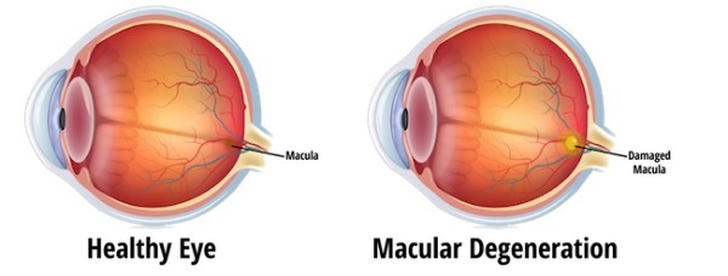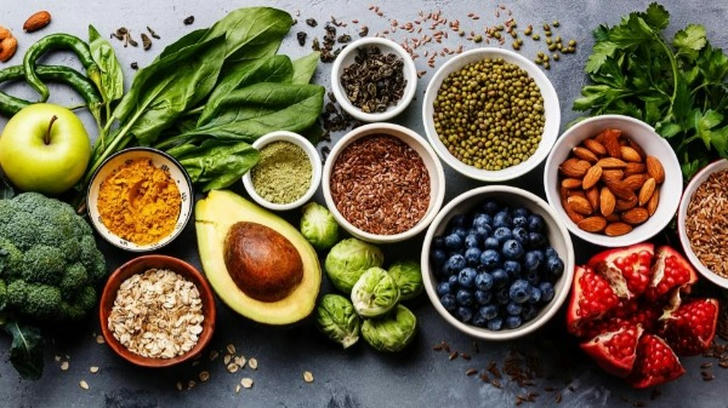Macular Disease and Nutrition: Can Diet Help Protect Your Vision?
When it comes to eye health, the old saying “you are what you eat” might hold more truth than you think. Macular disease, particularly age-related macular degeneration (AMD), is a leading cause of vision loss worldwide, especially among older adults. While genetics and aging play significant roles in its development, emerging research suggests that nutrition can be a powerful tool in protecting your vision. In this article, we’ll explore the connection between macular disease and diet, and how making smart food choices could help safeguard your eyes.
What is Macular Disease?

The macula is a small but crucial part of the retina, responsible for central vision and the ability to see fine details. Macular disease, including AMD, occurs when the macula deteriorates, leading to blurred or distorted vision and, in severe cases, blindness. There are two main types of AMD:
Dry AMD: The more common form, characterized by the gradual breakdown of light-sensitive cells in the macula.
Wet AMD: Less common but more severe, caused by abnormal blood vessel growth under the retina, leading to leakage and scarring.
While there’s no cure for AMD, certain lifestyle changes, including a nutrient-rich diet, can slow its progression and reduce the risk of developing the disease.
The Role of Nutrition in Eye Health
Your eyes, like the rest of your body, rely on a steady supply of vitamins, minerals, and antioxidants to function properly. Over time, oxidative stress—caused by free radicals—can damage cells in the macula, contributing to AMD. Antioxidants help neutralize these free radicals, protecting your eyes from harm. Here are some key nutrients that have been shown to support macular health:
Lutein and Zeaxanthin: The Dynamic Duo: Lutein and zeaxanthin are carotenoids, pigments found in high concentrations in the macula. They act as natural sunglasses, filtering harmful blue light and protecting the retina from oxidative damage.
Food Sources: Leafy greens like spinach, kale, and collard greens; yellow and orange vegetables like corn and peppers; and eggs.
The Science: Studies, such as the Age-Related Eye Disease Study (AREDS), have shown that diets rich in lutein and zeaxanthin are associated with a lower risk of AMD progression.
Omega-3 Fatty Acids: The Anti-Inflammatory Powerhouse: Omega-3 fatty acids, particularly DHA (docosahexaenoic acid), are essential for maintaining the structural integrity of retinal cells. They also have anti-inflammatory properties, which may help reduce the risk of AMD.
Food Sources: Fatty fish like salmon, mackerel, and sardines; flaxseeds; chia seeds; and walnuts.
The Science: Research suggests that people who consume higher amounts of omega-3s have a lower risk of developing AMD.
Vitamins C and E: The Antioxidant Protectors: Vitamins C and E are potent antioxidants that help combat oxidative stress in the eyes. Vitamin C also supports the health of blood vessels in the retina, while vitamin E protects cell membranes from damage.
Food Sources: Citrus fruits, strawberries, bell peppers, almonds, sunflower seeds, and spinach.
The Science: The AREDS study found that a combination of vitamins C and E, along with other nutrients, reduced the risk of AMD progression by 25%.
Zinc: The Eye’s Guardian: Zinc is a mineral that plays a vital role in transporting vitamin A from the liver to the retina, where it’s used to produce melanin, a protective pigment in the eyes. Zinc deficiency has been linked to poor night vision and an increased risk of AMD.
Food Sources: Shellfish, beef, pumpkin seeds, lentils, and chickpeas.
The Science: Zinc supplementation has been shown to slow the progression of AMD in some individuals.
Beta-Carotene and Vitamin A: The Vision Vitamins: Beta-carotene is a precursor to vitamin A, which is essential for good vision. It helps maintain the health of the cornea and supports the production of rhodopsin, a pigment that allows us to see in low-light conditions.
Food Sources: Carrots, sweet potatoes, butternut squash, and apricots.
The Science: While beta-carotene has been shown to benefit eye health, smokers should be cautious, as high doses may increase the risk of lung cancer.
The AREDS Formula: A Nutritional Blueprint for AMD
The Age-Related Eye Disease Study (AREDS) and its follow-up, AREDS2, have been groundbreaking in understanding the role of nutrition in AMD. These studies developed a specific supplement formula that has been shown to slow the progression of intermediate to advanced AMD. The AREDS2 formula includes:
Vitamin C (500 mg),Vitamin E (400 IU),Zinc (80 mg),Copper (2 mg, to prevent zinc-induced copper deficiency),Lutein (10 mg),Zeaxanthin (2 mg).
While supplements can be beneficial, they should not replace a balanced diet. Always consult your doctor before starting any new supplement regimen.
Foods to Avoid for Macular Health

Just as some foods can protect your vision, others may increase your risk of AMD. Here’s what to limit or avoid:
Processed Foods: High in unhealthy fats and sugars, which can contribute to inflammation and oxidative stress.
Trans Fats: Found in fried foods and baked goods, trans fats can damage blood vessels in the eyes.
Excessive Alcohol: Heavy drinking has been linked to an increased risk of AMD.
Lifestyle Tips for Macular Health
In addition to a nutrient-rich diet, these lifestyle changes can further protect your vision:
Quit Smoking: Smoking is one of the most significant risk factors for AMD.
Wear Sunglasses: Protect your eyes from harmful UV rays, which can contribute to macular damage.
Exercise Regularly: Physical activity improves blood flow to the eyes and reduces inflammation.
Monitor Your Vision: Regular eye exams can help detect AMD early, when treatment is most effective.
Conclusion
While macular disease can be daunting, the power of nutrition offers a ray of hope. By incorporating foods rich in lutein, zeaxanthin, omega-3s, vitamins C and E, zinc, and beta-carotene into your diet, you can take proactive steps to protect your vision. Remember, a healthy diet isn’t just good for your eyes—it’s good for your overall well-being. So, the next time you sit down for a meal, think of it as an opportunity to nourish your eyes and preserve the gift of sight.
After all, when it comes to your vision, every bite counts.
